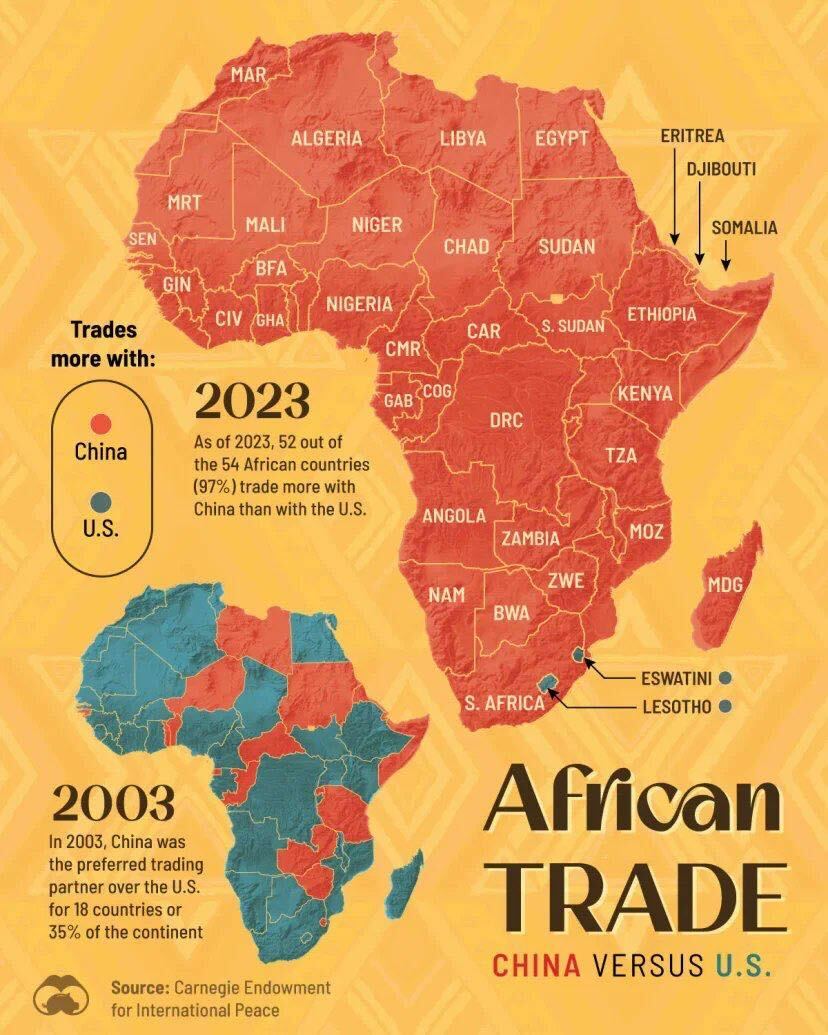Introduction
Cross-border payments between Nigeria and China have become a vital part of one of Africa’s most significant trade relationships. Over the past three decades, China has cemented its position as Nigeria’s largest trading partner, supplying the bulk of consumer goods that fuel Nigeria’s import-heavy economy.
But this relationship has evolved far beyond container shipments and market stalls. As trade volumes increased, so did the need for a more stable and efficient pathway for financial transactions.
This led to the start of a bilateral partnership when Nigeria began negotiations for a currency swap with China in 2016. This was a strategic move influenced by China’s growing dominance in global trade and finance.
That same year, the International Monetary Fund (IMF) included the Chinese yuan in its basket of Special Drawing Rights (SDRs), recognising China’s expanding influence in the global economy.
By 2018, Nigeria and China signed a $2.5 billion currency swap agreement, allowing both countries to settle trade in their local currencies, Naira and Chinese yuan, rather than relying on the U.S. dollar.

As part of the deal, Nigeria committed to holding 4.5% of its foreign reserves in yuan. The goal was simple: reduce transaction costs, ease dollar demand, and make cross-border payments faster and more accessible for businesses on both sides.
That agreement has since expired and renewed as Nigeria’s President Bola Ahmed Tinubu strive to stabilise the Naira and support the ease of doing business.
For the private-sector, especially small and medium-sized importers, this type of bilateral relationship offers much-needed relief. When transactions are routed through the dollar, businesses can lose as much as 20% in exchange rate losses and bank fees. Settling directly in Naira-yuan pairs offers a more affordable alternative.
However, the benefits of this trade arrangement aren’t equally shared. While China exported over $2.15 billion worth of goods to Nigeria in March 2025 alone, Nigerian exports to China during the same period stood at just $157 million, a massive trade imbalance that continues to raise questions about equity and long-term sustainability.
Growing Nigeria-China trade ties
Exports
Nigeria’s exports to China are largely raw materials. In 2023, mineral fuels and oils accounted for the majority of exports, followed by ores, salt/earth materials, and agricultural products like oil seeds and raw hides.
Imports
Manufactured goods have long dominated Nigeria’s imports from China. From electronics and auto parts to heavy machinery, household appliances, and everyday consumer items, China remains a key supplier of affordable products that fuel Nigeria’s import-driven economy.
In recent years, however, the nature of this trade has evolved significantly. What was once dominated by large-scale importers and corporate contracts has now expanded to include a new wave of e-commerce and social commerce entrepreneurs.
These smaller businesses are making frequent, low-volume purchases directly from Chinese suppliers often without ever leaving their phones.
Thanks to platforms like Instagram, WhatsApp, and TikTok, Nigerian vendors are now building direct relationships with Chinese manufacturers and wholesalers.
They import everything from hair extensions and phone accessories to kitchenware, fashion items, props, and interior décor.
This shift has empowered a new generation of digital entrepreneurs; often single-person ventures who use social media to both source products and reach customers across Nigeria.
For the average Instagram user in Nigeria, it’s now common to see ads from Chinese factories: videos shot on factory floors, showcasing low-cost products with strong resale potential in Nigerian markets.
This new trade dynamic highlights the growing importance of flexible, fast, and affordable cross-border payment systems tailored to the digital economy.
Current payment channels and methods
Cross-border payments between Nigeria and China have become more diverse in recent years, reflecting shifts in technology, regulation, and user behaviour.
Nigerian importers, from corporate procurement officers to small-scale e-commerce vendors now rely on a mix of traditional banking, fintech, and informal systems to complete payments to Chinese suppliers.
SWIFT transfers via Nigerian banks
Traditional bank transfers through the SWIFT system remain a commonly used method for larger transactions.
Nigerian banks such as GTBank, Zenith, and First Bank offer international transfer services that route payments through intermediary correspondent banks usually in the U.S. or Europe before reaching Chinese recipients.
While relatively secure, this method is often slow, expensive, and heavily affected by dollar scarcity and regulatory approvals, particularly for businesses without Form M clearance or domiciliary accounts.
Also, effective cross-border payment through bank transfers are often stifled by China’s bureaucratic framework. For example, to effectively settle payments in bank accounts in China, senders are usually required to pay into escrow accounts which their Chinese partners have to show proof of transaction before claiming the payment. A long and tedious process. This was a huge issue during the pandemic because nobody was working in the banks, so cross border payment was halted due to bureaucratic steps and procedures.
Chinese platforms: Alipay, WeChat Pay, and bank transfers
For importers working with Chinese suppliers on platforms like Alibaba or 1688, Alipay and WeChat Pay have become popular.
These mobile payment services are deeply embedded in China’s financial ecosystem and offer quick, seamless transactions.
However, accessing them from Nigeria typically requires a Chinese bank account or third-party agents, limiting direct use by most Nigerian SMEs.
Informal payment agents
With limited access to foreign exchange and significant hurdles in formal banking channels, many Nigerian traders, particularly small and medium-sized enterprises (SMEs) and social commerce vendors, turn to informal payment agents to facilitate cross-border transactions.
These agents, often operating out of Lagos, Guangzhou, or Yiwu, accept Naira payments locally and disburse funds in Chinese yuan to suppliers in China, sometimes completing transfers within hours.
For many e-commerce sellers, this system offers speed and convenience. Several Instagram vendors surveyed for this report revealed that they mostly rely on their import agents to make payments to Chinese suppliers and also to coordinate logistics picking up goods from various locations in China and arranging shipment to Nigeria.
However, while this method is widely used, it operates entirely outside the formal financial system.
Vendors cited lack of transparency and accountability as key drawbacks. Exchange rates are set arbitrarily by agents, with no clear benchmark or verification process, leaving merchants vulnerable to inflated rates, inconsistent charges, and potential fraud.
Future outlook and opportunities
As trade between Nigeria and China continues to expand, the future of cross-border payments between the two countries lies in digitisation.
More digital currency adoption
One of the most significant shifts on the horizon is the increased adoption of digital currencies, particularly China’s e-CNY (digital yuan).
With China piloting cross-border use of the digital yuan in several trade corridors, there is strong potential for Nigerian importers to eventually use this innovation for faster, cheaper, and more transparent payments.
Nigeria’s own push toward digital finance, through the eNaira may open the door for bilateral digital currency integration in the future.
Fincra
The rise of fintech platforms both global and African offers a viable alternative to traditional banking and informal agents. Fincra for example facilitates cross-border payments for businesses to China.
Fincra offers a seamless solution tailored to the modern Nigerian importers and exporters. Whether you’re a large-scale distributor or a small business owner, Fincra is built to simplify and secure your cross-border payment experience.
At the heart of Fincra’s offering is multi-currency support, including direct access to all the key currency pairs needed to facilitate Nigeria-China trade. From Naira (NGN) to Chinese yuan (CNY) and USD, Fincra ensures constant liquidity so your payments go through quickly, reliably, and without the drama of FX shortages.
Our real-time currency exchange dashboard gives you up-to-the-second rates, empowering you to make smarter financial decisions and avoid the unpredictable markups often associated with informal agents.
With Fincra, what you see is what you get, no hidden charges, no shifting rates, no surprises.
And it doesn’t stop at payments. Through our intuitive, business-friendly dashboard, you can manage all your transactions, view your transaction history, track currency performance, and gain full visibility into your cash flow, all from one place.
if you trade with China, Fincra is the infrastructure you’ve been waiting for.
Conclusion
The Nigeria-China trade relationship has outgrown the legacy financial infrastructure that once supported it.
Traditional systems are often too expensive, too slow, and fundamentally unsuited for the high-frequency, low-volume transactions that now define e-commerce and social commerce between the two nations.
While global innovations like Wise and similar fintech platforms have succeeded in lowering cross-border payment costs elsewhere, Nigeria remains largely disconnected from that infrastructure, restricted by local regulations, limited foreign exchange access, and lack of integration.
It’s important to remember that money doesn’t physically cross borders; payments are settled through messaging systems, and it’s up to local institutions to provide the liquidity. That’s where the system often breaks down.
This gap is now being filled by non-traditional financial institutions like Fincra, which offer modern infrastructure, leaner operations, and on-demand liquidity.
By lowering overhead and enabling real-time, transparent transactions across multiple currency pairs including crypto off-ramps, Fincra is not just making cross-border payments cheaper, but also smarter and more accessible for Nigerian businesses of all sizes.
As trade between Nigeria and China continues to expand, the future of cross-border payments will belong to platforms that are flexible, digital, and built with emerging markets in mind.



